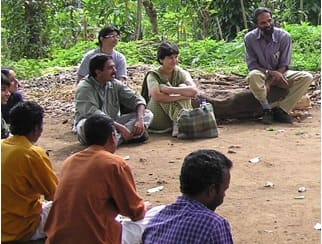
Self-determination
The right to self-determination is “the right of a cohesive national group (‘people’) living in a territory to choose for itself a form of political and legal organization for that territory. It is a collective right of indigenous peoples to freely determine their own social, political, cultural and economic status.”[1] Self-determination has frequently been associated with the will of a people to obtain secession from the state it resides in. [2] For this reason, states have often been reluctant to recognize the right to self-determination of indigenous peoples.[3] However, indigenous peoples have often called for forms of self-determination that do not entail secession.[4] They called for forms of autonomy that include ‘internalself-determination’, predominantly aimed at asserting nationhood, perpetuating indigeneity, preserving languages and cultural practices, honouring place-based relationships, respecting territorial integrity and maintaining traditional governance structures.[5]
The right to self-determination of indigenous peoples is the core precept and principle that all other indigenous rights are based on. Both the UN Declaration on the Rights of Indigenous Peoples and Convention 169 on Indigenous and Tribal Peoples of the International Labour Organization describe the right to self-determination as the right of indigenous peoples to “exercise control over their own institutions, ways of life and economic development and to maintain and develop their identities, languages and religions, within the framework of the States in which they live”, and as the prerequisite for the realisation of the right to be equal but different: i.e. the right to maintain cultural, religious and economic traditions and social institutions separate from those of the dominant part of the society.
The right to self-determination entails the right to #free, prior, informed consent (FPIC) in all cases when lands, water, air, biological diversity and all other gifts of nature might be affected by external measures, projects and public policies. This also concerns other sectors such as education, justice, or social security programmes that may affect indigenous peoples. An insightful elaboration of the concept of ‘self-determination’ is described below as ‘sustainable self-determination’
Key references:
Anaya, 1996; Xanthaki, 2007; Anaya, 2009; Tomaselli, 2016.
[1] Reyes, 2017.
[2] Anaya, 1996, page 98, note 4.
[3] Xanthaki, 2007, page 140.
[4] Ibid, page 146; Anaya 1996, page 111.
[5] This, however, is “more than merely choosing among what is on offer from one political or economic position only.” (Cassese 1995, page 101).